How’s that for a bombastic title? Not that self-publishing needs any more defending because it’s here to stay and detractors are gathering cobwebs, but not a lot has been written here about publishing as it relates to the music industry, or about the long-term future of publishing. One of the mysteries about self-publishing is that a playwright can put on his own play out of pocket, or a band can self-release a book, and this is not considered…pathetic. The difference between this and self-publishing, as far as I can see it, is that book writing and reading is far more intimate. In a play, you’ve got a cadre of actors, a director, lighting techs, and so on, who seem to suggest that the play has some merit or they wouldn’t bother. Same goes with a band and the other band members. Even if the band/play sucks terribly, it still has built in supporters. Add to this as well the fact that there’s an audience, who may be laughing, clapping, or otherwise responding, and it’s a far less alienating experience than being alone with a book that may not justify the read.
But so what? The process of viewing a play or listening to music is different, but it’s still a form of self-release. As publishing starts to mirror the state (and downfall) of the music industry, there will be no sense of difference between the two. There’s a very great piece about the music industry on Indieoma and the consensus applies equally to the publishing industry. In the piece, Simon Indelicate from the band The Indelicates says,
Let us be clear as to why the music industry was briefly profitable. A small number of companies were able to acquire, by wealth, a few scarce resources. Firstly, the expensive equipment required to record multiple tracks of high-quality audio and mix them together until they sounded nice. Secondly, the spending power to order at a bulk discount lots of plastic circles with data encoded on them as well as to print attractive packaging to house them in. And, lastly access to a large, physical network of shops and printed magazines with which to promote these items for sale.
Because these resources were scarce and expensive they acted as a bottleneck, throttling the amount of recorded music that could be transferred from the vast pool of people capable of making music to the even vaster pool of people wanting to listen to it in their houses. This limit on the quantity of produceable music created another scarce resource: recorded music itself.
This is the exact same argument to make about the agent/editor system. They held the tools so they had the power. Currently they have more power than music execs because street-level Barnes and Nobles are still a major place for book buying, whereas Tower Records has shut down. It may be hard to envision something that’s not here yet – but all things point towards the world of book buying being exactly synchronous with what’s happened in the music industry. As it happens, that’s both a good and a bad thing.
Right now, a home recorder can create high-quality recordings from his/her desktop and market it from a bedroom:
The facilities to make high quality multitrack recordings are vanishingly cheap now – the audio software available free on aviary.com is miles ahead of what they used to make Sgt. Pepper’s, the best multitracking suites you can buy cost no more than a guitar that stays in tune. Plastic circles are not needed to transport data, data requires no medium or manufacturing – this data I am typing now will travel to its consumers through the clear, clean air. I can build a better-stocked and prettier shop than HMV in two hours and open it immediately. I can send a thousand demos to a thousand writers with a hundred thousand readers in five minutes and I can do it all for almost nothing.
The same exact thing is true with the publishing industry – and once ebooks inevitably become as ubiquitous as mp3s, the same scenario is going to play out. You can claim that editors and agents add a filter from the truly unreadable books, but the flipside of this issue is that the agent/editor system is really a form of censorship. If self-publishing didn’t exist, interesting works might never find the light of day. As publishers lose money due to lost revenue from the lower price of ebooks and a dwindling number of readers, they’re going to be more desperate to find “big sellers” and so cramp the market even more with sure-fire success – i.e., books that will be successful because similar books have been successful in the past.
If history has taught anything, it’s that groundbreaking work (whether it’s art or science or something else) is often hated and reviled. If it’s reviled and never published, that’s a major loss to human progress. Yep, I’m putting self-publishing in those terms: it represents the capacity for progress in that all work has an outlet. Inevitably, crap is going to filter through – even a majority so. This matters not one iota. All that matters is that there is no gate and everything is available, including work that is the most challenging. If we take the current climate to its most extreme conclusion, work is going to get less and less challenging until all you have are remakes. Sounds a bit familiar.
Giving more power to artists is something to be celebrated. Problem here, however, is that new accessibility makes it harder to be profitable. If 1000 authors are charging nothing for an ebook and you’re charging $5, you’ve got some stiff competition. And so authors inevitably are going to lose money. DRM isn’t the solution, as information is meant to be shared. It’s terrifying to corporations, but again – just as it’s progress that every person has a voice, it’s also progress that the artist’s voice is easily accessible.
Simon Indelicate goes on:
The price valuation that emerged from the balance of scarce supply and plentiful demand – that lovely, £8-12 per 45 minutes of music – is not sustainable. iTunes revalued it at £5-8 but that isn’t low enough. As the world catches on, some people will download illegally, others will use last.fm or pandora or surf myspace or install spotify or listen to free demos or music podcasts or CC license albums or free promos. They’ll want about the same amount of music as they always did – demand won’t change too much – but they will further diversify their taste. instead of listening to 450 minutes of music a hundred times, they might listen to 45,000 minutes with little or no repetition.They will value that 45,000 minutes as much as they had before, but now that the resource is abundant their £100 will have to go further and pay for a hundred times as much music. Consequently, the value of the resource will drop. It will drop to the point where a traditional record company will not be able to make money by trading in the scarce data created by a small pool of appointed ‘talent’.
The trouble is that he doesn’t really have an answer. Music, and eventually books, are going to be abundant and cheap, leaving less money for the artist. There are alternatives, like asking for donations for free content, but this isn’t yet a reliable business model, as it’s not yet fully familiar to people. Futurismic has a great post about this issue which posits,
A small but die-hard clade of fans is enough to keep an artist in business nowadays (provided their tastes don’t run to Hollywood mansions and Gaultier bling.)
As with self-publishing, it’s an easier proposition if you’ve already got a built-in fan base, but that base doesn’t have to be gigantic. Would this work if every musician or writer were crowdsourcing under the same model? Possibly, but it’s also likely that being an artist will be even less viable as a career choice.
It’s no surprise, then, that publishers are trying to jack up ebook prices, because they know cheap ebooks=their doom. If books are cheap and plentiful it will be harder for publishers and authors both to make a living. But while an author only needs money to maintain one life, a major publisher needs a hefty millions of dollars to keep the business afloat. And if a publisher is not offering a decent advance, in addition to taking a higher cut of royalties, what’s to stop many authors from jumping ship entirely? This includes highly-profitable writers like Anne Rice who sees the value into taking things into her own hands. If an author’s platform is digitized and a great majority of books are bought via ebooks or online, famous authors could start becoming self-publishers. No one cares about the first time novelist self-publishing, it’s when Stephen King self-publishes because he can make the same – or more – releasing it himself, that publishers are going to start collapsing like newspapers. They just won’t be nearly as necessary.
So what’s the answer? Short of changing the entire monetary system so that it’s much cheaper to live, and so smaller profits have a lesser impact, there really isn’t an alternative. This is the future: there will be more books being produced, which will be more accessible, thereby diminishing their value. An argument could be made, then, that advances should go up if writers are not making a profit otherwise. Yeah, but if publishers are not making money via book sales, why should they be giving money to authors upfront? They’re just not going to have the same pool to take those sorts of gambles.
In short, it’s a mess – both enormously exciting in the field of self-publishing, as it’s going to be very similar to how many authors will be releasing books in the future. If authors aren’t strictly self-releasing books, then they will be using self-publishing tech to release books: print on demand and ebooks. Very good authors will still be able to make a living because they’ll be worth the attention. And, really, that’s as it should be. In a sense, you could say that if everyone’s releasing music or books under the same model then you can a true sense of a work’s value, given how many people are downloading, donating, sharing, and buying.
Perhaps people will adapt to the new model and some sense of financial altruism will take over. I’ve been highly gratified myself seeing people pay anything for my novel at Smashwords when I’ve set it at “You set the price.” A response to the Indelicates piece says,
Part of the cultural shift has removed the incentive for – and assumption of – payment. Oh shit. But I think that is largely as temporary as downloading itself, since once we are all re-converted to streaming and effectively ‘renting’ our music from the grand library of everything (especially on mobile devices instead of big old computers) we will tacitly re-accept the concept of payment.
That’s possible, and perhaps cloudsourcing will save publishing, and all artistic mediums. All told, while digitization may be turning publishing on its head, it really seems as it should be: artists will have more control over what is and isn’t released, and consumers will have access to anything they want. It improves the flow of information, even as it decreases the ability to profit. That sounds a lot like progress, because the purpose of writing isn’t just to make a lot of money, but to spread ideas.
Get an Editorial Review | Get Amazon Sales & Reviews | Get Edited | Publish Your Book | Enter the SPR Book Awards | Other Marketing Services


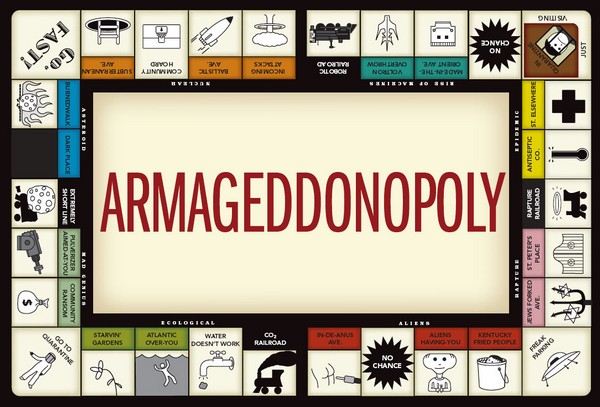









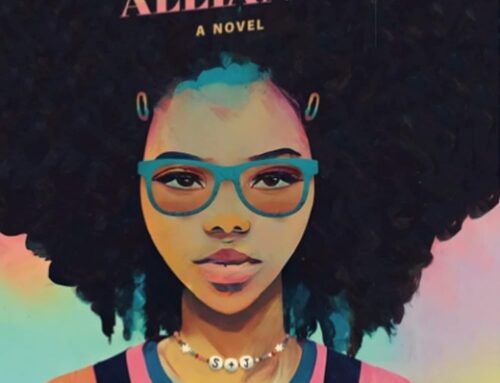
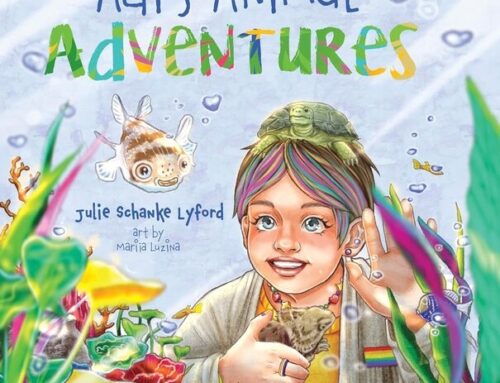
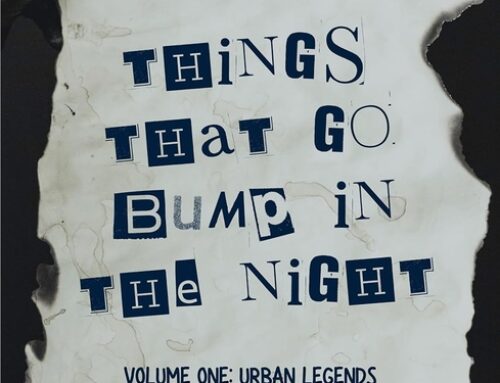
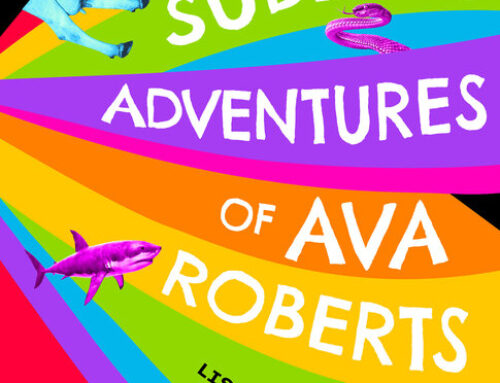
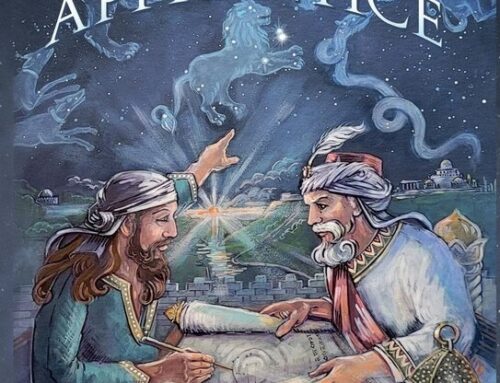
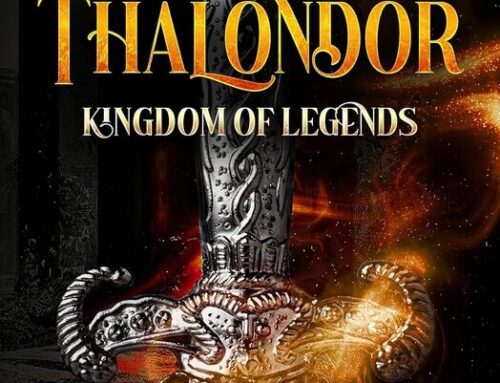

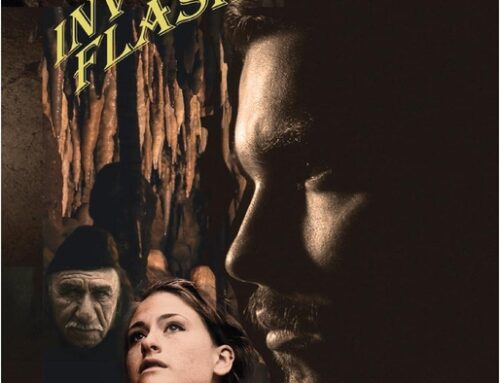
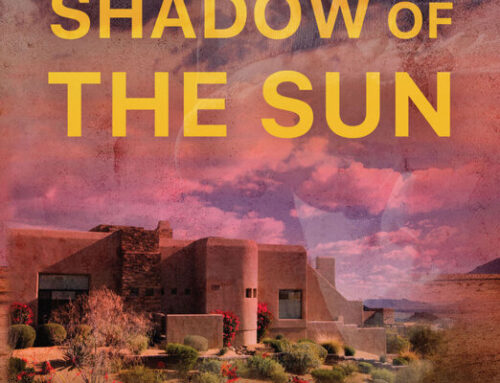

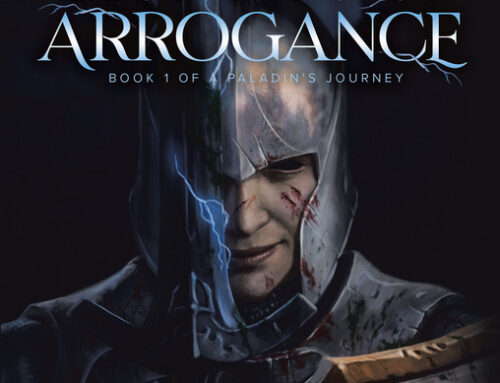
Terrific, Henry! Very well-stated, and exciting as hell. Thank you.
The future is NOW!
~Lannie~
>>>Short of changing the entire monetary system so that it’s much cheaper to live
You put that in there specifically to bait me, didn’t you? Well, that’s coming too! The current system is unsustainable!
But back to books … see, what people are projecting is that the same X number of people who write/want to write books today will remain constant. I argue this will not be the case. All of the ones who find out how hard it is to succeed, all those who aren’t actual writers, they will drop out.
Also, we don’t know what other Twitter-like time-sucks will be devised to keep people away from reading books.
So there are more factors than those mentioned above to take into consideration.
Well, at least the new money will be better.
Yeah, I had a paragraph about the financial system, but I thought it detracted. My views on the economy are pretty…progressive. And not “socialist” progressive, but abolishing money progressive. The environment/finance/publishing etc. are all unsustainable in similar and intertwining ways. I’d like to live here: http://thevenusproject.com.
You can’t abolish money at all, you can simply make it look like something a lot different than it does now. Money is just a marker system to keep track of the favors we owe each other.
If you personally knew every single person you’d ever need anything from, you wouldn’t need money, but since society is so large, if you need a wooden bowl and don’t know any wooden bowl makers, then you need to collect an owed favor (piece of money) from someone you do know (by doing a favor for him/her/it) and take that to someone who does know the wooden bowl maker. As long as there are so many people on Earth that we can’t know everybody, we’ll need a marker system for favors, and that system will act just exactly like money does now.
If I could give you a copy of what I wrote today, and you would feed me for the day, and I could give Mike a copy, and he’d let me sleep under his roof, and I could give someone else a copy, and that person would make new jeans for me, and so on and so forth down the line, then we’d need no money at all.
But don’t let me hijack a great thread! I return you now to your regularly scheduled comments.
You’re probably right, but it’s nice to fantasize. It relies on a total reworking of how society operates and what we value. Bartering could work if we had a different value system – if we weren’t manufacturing a thousand different versions of the same item and people weren’t looking to acquire useless things. You can say “useless” is subjective, but there’s a vast amount of waste in our culture. Print on demand, for one, is a way of limiting unnecessary manufacturing.
I knew I was opening things up by mentioning the economy (which is why I took politics out of the original post). Though I don’t think it’s totally unrelated – if we’re thinking how publishing and society might be in 100 or 1000 years, not just the next ten.
The basic thrust of this post is that self-publishing is a step towards a major change in how society operates. Jason Epstein in The New York Review of Books makes a similar point:
http://www.nybooks.com/articles/23683
“The crisis of confidence reflects these intersecting shocks, an overspecialized marketplace dominated by high-risk ephemera and a technological shift orders of magnitude greater than the momentous evolution from monkish scriptoria to movable type launched in Gutenberg’s German city of Mainz six centuries ago.”
Just read that article at NYRB. I think Epstein makes some great points.
The reappearance of the backlist is something I’m really looking forward to. Here in Australia, our market for local writing is very small. It’s almost impossible to get copies of some Australian novels published as little as twenty years ago. Only the bestsellers and those on school and university curricula are still in print. The digital world will change this, because it will cost publishers virtually nothing to make the entire backlist available, and readers like me will happily pay for it.
It’s interesting that Epstein thinks traditional publishers will still be producing new work in the digitized future – he refers to their main cost being the upkeep of editorial teams. I hope he’s right. As a reader, in a world of infinite choice I’ll certainly be looking for help. Again, I will happily pay a premium to access work that’s been through the gatekeeping process. No matter how liberating it is for authors, having access to EVERYTHING is not necessarily appealing for readers. How long is it going to take me to find something good? My hope is that major publishers see the opportunity that the digital future gives them: with a massively reduced cost base their business is significantly de-risked. They can start publishing the well-written books they only knocked back because they didn’t think the market was large enough. And authors will still be attracted to the majors because of the market they can access – readers like me are more likely to buy from them, rather than spend half my life sorting through the virtual slush pile.
I like Epstein’s thinking on the dangers of the digital, too. You can, at a stretch, consider the gatekeeping process as a form of censorship. But a fully-networked digital future offers far greater capacity for the limitation of what can be said, and the ultimate destruction of what was once said. Look at China’s attempts to restrict the internet. Do you really think they’re going to let “subversive” literature be trafficked online? How long will it be before some government department develops malware to ferret out and delete subversive e-books on your hard drive? I bet they’ll call it “Captain Beatty”.
“They can start publishing the well-written books they only knocked back because they didn’t think the market was large enough.”
I hope you’re right. That would be wonderful.
However, from all the evidence, the individuals currently manning the editorial barricades are staggeringly uninformed as to what constitutes a “well-written” book. I suspect that their brains have been reduced to boiled oatmeal by a steady diet of insipid Stephenie Meyer-style YA idiocy, as a consequence of which they wouldn’t recognize literate writing if it knocked them over the head.
Without a massive infusion of new (well-read) blood, I fear it’ll remain the same-old same-old.
Teenage vampires, anyone?
~Lannie~
Lannie,
I agree with you 100%.
I’m so tired of seeing same old same old in book stores, and if I want to find something new, original, and not formulatic then I go on amazon’s kindle store and peruse indie titles.
I recently read a “bestseller” that was total crap…and I suspect the only reason it’s anywhere near the top 10 in the bestseller list is because there was a film made about it. If there was no movie about the darn thing, I doubt anybody would have even heard of it…
I feel the same way about twilight (or as I call it Twitlight). Right now, I’m thinking that all one needs to have a best seller is to get a film version of it out to theaters ASAP and put well known/attractive actors in the leading roles. That seems to be how the large commercial presses are gaining their (unfair) advantage…
Maybe we should all team up with indie film makers, and level the playing field even further…
I was kind of a trade media darling when I got my writing career (as a military historian) going full time in about 1983. Every book I wrote got great reviews in Kirkus Reviews, Publishers Weekly, Library Journal, etc. The reviews were so good I was kidded about having a cousin on each editorial staff.
Then two things happened: I tumbled to, um, numerous reporting irregularities on royalty statements, and I was the only person who could return to print a book caught up in a publisher bankruptcy. I had the technical skills to self-publish and I found the cash. Thereafter, I published some of my own and had others published by Big Publishing. Eventually, I stopped sending straight text to editors; I did them all myself. In 1992, following heart surgery, I wanted to take full responsibility for all my stuff, including a few pictorials. In time, I found out I couldn’t afford the expensive pictorials, given the time the inventory took to work down. Otherwise, I was a full-time self-publisher who also published other deserving military genre authors. (I thus started two or three ongoing writing careers, and very proud of it.)
I did fine, but all the trade media that loved me in the 80s ignored me after 1992. I couldn’t get books into most bookstores at a time Big Publishing and Big Bookstores were conspiring to kill indie bookstores =and= indie publishing. I was cracking Big Publishing’s rice bowl, so I was dirt to the entire trade. Same guy, better books, different delivery, different story. Museum shops, Amazon.com, and direct sales to a widening fan base kept me going.
If I was in movies, I’d have been spoken of as Oscar material. The Big Publishing syndicate wouldn’t hand me a fork to bail myself out.
I know I’ve lost a ton of money doing it my way. So what. I’ve had a great run. I’m about to retire and, as it looks now, I can’t live long enough to spend my savings. All of my forty books, except six pictorials, are in print-on-demand and/or ebook format; they earn me well north of a thousand dollars a month and are selling better every month. I have the space now to try fiction; my first novel is available as a Kindle and Sony ebook and a sample POD trade paper was shipped to me today. I started work on my second novel on Sunday.
You know: Screw ’em.
Fantastic post Eric and congratulations.
My second book Treachery In Turtle Bay II went live today on a few sites (Links at http://www.treacheryinturtlebay.com) via CreateSpace and thanks to that great Amazon entity will be available to libraries and book stores globally in a few weeks. (Book one already is there). Kindle is in processing probably out today or tomorrow.
I love the writing, graphics, setup, marketing, selling etc. and one of these days I will break the code to drive readers to my books in the tens of thousands. Until then I am learning a new iteration of an old business (legacy publishing is the old business) and enjoying every minute of it. Given all the marketing and promotion I do for mine and my wife’s books I really do not understand what being captured by a legacy publisher would do for me other than reduce my royalties on probably the sale of fewer books.
I ain’t quitting my day job just yet, but I believe eventually I will realize financial success…right now I am happy with the clickety click of sales and the fantastic experience.
The times they are a changing and I believe we are part of a massive disintermediation of sales and distribution of all copyrighted media.
Very interesting article, I agree with the vast majority of it. I do think that things will unfold a lot like you have outlined. Regarding Mike Cane’s thought that many writers will give up, I actually think the opposite is true – as you’ve suggested in your post. I blogged about this last week in fact.
Most of us out their trying to become published authors are not under any illusions about making a living from it, even if most of us “hope” that it might happen. It’s been beaten into us how long a shot it is. We’ve also heard ad infinitum how many books and how many years you have to write before breaking through and starting to get any compensation.
So, i think most of us pretty much don’t expect to get paid. This is the model we’ve been living under for a while now – really the beginning of the end was removing the advantaged treatment for publishers under Reagan, after which the great corporate consolidation began.
Things will not change financially for most of us, except it may be easier to take in a grand or two a year writing fiction than it was previously. I don’t think most of us will stop writing, and I think we’ve only seen the tip of the iceberg in terms of self-publishing and e-books by unpublished authors. Quality IS going to go down, although the very best books will likely be just as good. The mid-list authors are the ones who will suffer in my opinion. They’re already suffering, and it will only accelerate.
This state of affairs – high quality at the very top with everything else, especially the vast middle, suffering – is certainly not unique to publishing. We see it in many other places – sports, science, and even in disparity of incomes. It’s the logical outcome of the combination of a market economy and poorly regulated corporations.
Fantastic, cogent, logical and truly enjoyable Henry.
As with the Music Industry, publishing (both legacy and interactive) will continue to produce material that is garbage but marketable and brilliant but without a paying audience.
For my two cents, I think the proportion in both product delivery venues will eventually look the same.
Interesting article, and I agree that the digitization of the publishing industry has a lot of parallels to what has happened to the music industry in the last decade (although publishers seem somewhat less resistant to change than record companies were).
If Simon Indelicate is correct in his assumption about how digital consumers place monetary value on their entertainment, though, it actually bodes well for writers.
He says, “they’ll want about the same amount of music as they always did, but instead of listening to 450 minutes of music a hundred times, they might listen to 45,000 minutes with little or no repetition. Now their £100 will have to go further and pay for a hundred times as much music.”
The good news is, people don’t read books the same way they listen to music. We’re already at the point where buyers (mostly) only read a book once, so if people value 45,000 minutes of digital reading the same way they valued 45,000 minutes of analog reading, one book is still worth what it was before the digital revolution.
Market factors will still drive the price of e-books down, I think — chief among these being the need to financially justify expensive e-readers — but I don’t see any devaluation from readers suddenly consuming 100 times as much material as they used to.
Amazon’s core ebook concept is to sell an expensive, highly profitable reader and service it with cheap books. Sony wants to sell an expensive, profitable reader and doesn’t seem to care how much the book costs. Kobo, to which I’ll be uploading the first few books today, doesn’t sell a reader (it services smartphones with free reader apps) and doesn’t seem to care about ebook pricing. I don’t know what the hell B&N is thinking with respect to its Nook reader; they’ve shut me and my forty current titles out.
While I was preparing to upload ebooks to Sony in January, I considered raising the price above the $9.99 I charge for Kindle editions. And I thought about doing so yesterday, as I was figuring out my approach to Kobo. I decided to let it ride at $9.99. List price should be maintained across the board. Also, I did all the work I need to do when I only had Kindle as an outlet; Sony and Kobo are riding almost free on that work, and most of my books are nearing full amortization of the value I place on the time spent to prep books for electronic sales, including learning curve.
The problem of selling higher than $9.99 is market force, but not so much the pressure of what a reader is willing to spend for an ebook, as everyone seems to think. The =real= problem is that most trade paperbacks sell on Amazon for around $10.25. A hardcopy book is a MUCH better value than an ebook. It can be loaned out and it can be resold on Amazon, a used-book store, or a garage sale. An ebook has little to no value after it’s read if it’s trapped on a reader or a given hard drive.
It is true that the trade paperbacks I produce for print-on-demand sales are more expensive than most trade paperbacks produced via offset. This means I offer a $9.99 ebook edition versus $25-$35 trade paperback, so I =could= get away with selling the ebook for more. I tried, believe me. I priced the first volume of a two-book set at $12.99 and the second volume at $9.99, just to see. I never sold a copy of the $12.99 volume, and only a few of the $9.99 volume. Then I priced both at $9.99. I sell a steady average of ten of each per month. My income from each volume will double when Amazon raises its royalty rate midyear.
I think Kobo is the sleeper here. Way more people have smartphones than e-readers. Numbers are expected to move toward a billion within a few years. Smartphone users are looking for ways to maximize their investment, and reading seems to be taking hold. It remains to be seen; though I have made a logical deduction, marketing trends are never logical–because they involve human thought processes. Kindle is moving into the smartphone business; I’m not sure that Sony is thinking beyond making and selling another iteration of consumer electronics.
I’ll have to look into Kobo — do they use the epub standard? have an iPhone and have used the Kindle app for it — I’m not convinced that smartphones are the wave of the e-reading future, simply because to me it’s kind of a pain to read for any length of time on a tiny screen.
This highlights another important difference between the digitization of the publishing industry and the music (and the home video) industry. MP3s were just BETTER than CDs because you could carry your whole music collection with you, and mix it up however you wanted. Consumers adopted the technology on their own, while the record companies were actively trying to prevent them from doing so. DVDs were better than VHS tapes, and people upgraded because they wanted the improved experience (jump to any scene, bonus features, etc.). Consumers are adopting Blu-Ray much more slowly, though, because the only real advancement is increased resolution, which only really matters to a smaller number of high-end consumers (I, for one, am perfectly satisfied with the way standard DVDs look on high-def televisions).
I suspect that for e-books to really break out, manufacturers are going to have to somehow significantly improve the e-reading experience over print. Thousands of books on one device? Great, but I rarely feel the need to carry around more than one book at a time anyway.
The mass adoption of e-books for everyday reading could come much more slowly, as younger generations who are accustomed to doing everything on their electronic devices take over the marketplace. For now, I suspect that all these companies desperate to get a slice of the e-book pie might be jumping the gun a little.
I’m getting my book into as many formats as possible to be ahead of the curve, but something in my gut tells me that consumers aren’t clamoring for this quite yet.
The iPad has hit the scene yet, so that might change the game a bit. I know that on my Sony reader, it’s actually a worse experience – especially for a non-fiction book. Made glaringly obvious recently when I was reading a collection of essays and wanted to skip around. Such a pain. Works better for sequential reading.
So the transition isn’t going to be as lightning fast as mp3s, but it’s still going to happen once the devices improve. At the rate technology is improving nowadays, it won’t be long.
I like what you say here:
The good news is, people don’t read books the same way they listen to music. We’re already at the point where buyers (mostly) only read a book once, so if people value 45,000 minutes of digital reading the same way they valued 45,000 minutes of analog reading, one book is still worth what it was before the digital revolution.
Flipside is this could change people’s reading habits, so they’re more accustomed to bite-sized reading experiences and the long book becomes more endangered. Perhaps another discussion though.
I just uploaded my first two books to Kobo in a test I expect to flunk. They want ePubs, but they want them their way, so the ePubs I made for Sony (which an outside Sony vendor fixed at no cost to me) are not going to cut it. The test is to give me a learning platform.
To the larger points Matt raised, I’ve been averaging more money every month since July (when my whole list was up for the first time) from Kindle than from POD sales. (I use Ingram’s Lightning Source). It takes way more sales at net $3.50/ebook, but I do way better overall. I do =not= believe I’d capture the Kindle sales as POD sales if I stopped offering Kindle editions. I’ve asked several Kindle readers who contacted me and they are committed to amortizing the cost of their Kindles even after I point out that they’re doing so at the rate of $.26/book ($9.99 Kindle price vs. $10.25 trade paper price.) This is consistent with human logic. I don’ care, as long as I get paid.
I do not think that digitized books are in any way analogous to digitized music, nor that an ebook reader is the same as an iPod. Maybe they are analagous to movies that arrive via video streaming or in a Netflix envelope, except that the latter has to be sent back. A DVD you buy for keeps is the same as a bok you buy for keeps.
I do know that Amazon.com is run by book people but the Sony Reader store, and all it stands on, is run by consumer electronics people who care about Reader sales and not so much about book sales. They sure don’t get it about reader loyalty to authors and the resulting benefits of cross promotion between and among that author’s works, which Amazon gets in spades.
I have a Sony reader, and I buy a lot of books from Kobo. They use a standard e-pub format, and I have had no trouble reading the books on-screen with digital editions or reading them on my sony. Their prices are hit and miss, but they offer a lot of email coupon deals right now to drum up business. B&N epub books I can’t read on anything except their reader software or the Nook, what a PITA. At least if the Kindle version is DRM free, I can convert it using Calibre, but only if it’s DRM free. So most of the books I buy are from the Sony store, Smashwords, or Kobo. Fictionwise prices were ridiculous enough to laugh them off my buy list.
My only problem with Kobo is that I get an international purchase fee charged to my credit card. It’s annoying and usually between 30-40 cents. I live in the US. So even Kobo’s price has to be way better than everyone else’s to accomodate that.
Real ebook readers want to buy more books not less, and so that’s why we want easy access, open format, no DRM, and reasonable prices. If I can get an ebook for 10 bucks or less, I am more willing to try a new author — traditionally published or self-published, I don’t care. I won’t try new authors at hardback prices no matter what the NYT review says. I’ll wait until it gets bargain binned or get it used. With ebooks, I am willing to take a chance on anyone and anything.
As for my reading habits, in the month since I bought my sony reader, I have spent all my monthly book buying budget on ebooks. I haven’t bought a single physical book, which is odd, because I normally buy at least 3-5 a month. And now I don’t have to deal with the space issue in my library. Now I only buy the books I know I want to read again and again: classics, collectors items. The used bookstore will miss my donations I am sure.
As for my own work, I sell more ebooks than print books. Real readers want content; we don’t care about packaging. I would have never bought Dan Simmons Drood for 26.00 bucks, 774 pages or not. I have never read him and it’s too much. So it was wait for paperback, wait for the bargain bin, or thanks to digital, wait for the ebook. I picked it up for 12 bucks and some change. If I hate it, I won’t be as upset. I also purchase a lot of Indie books for review. Yes, many of my reviews are unsolicited. I now find myself ditching the queries and ferreting my own review material out over at Smashwords. I love it. Now if Smashwords would just their distribution ironed out with Kobo and Sony, all would be right in my world.
As for reviews, the Podpeople have always been a digi review site. We have always accepted digital as well as ARCs for review. I review almost exclusively PDF, but now I can take pretty much anything, and the author doesn’t have to spend a dime on an ARC unless they want to be included in our giveaway.
So yes, things are going to change, and the readers who want content are going to drive the movement.
Course, that’s my ereading opinion.